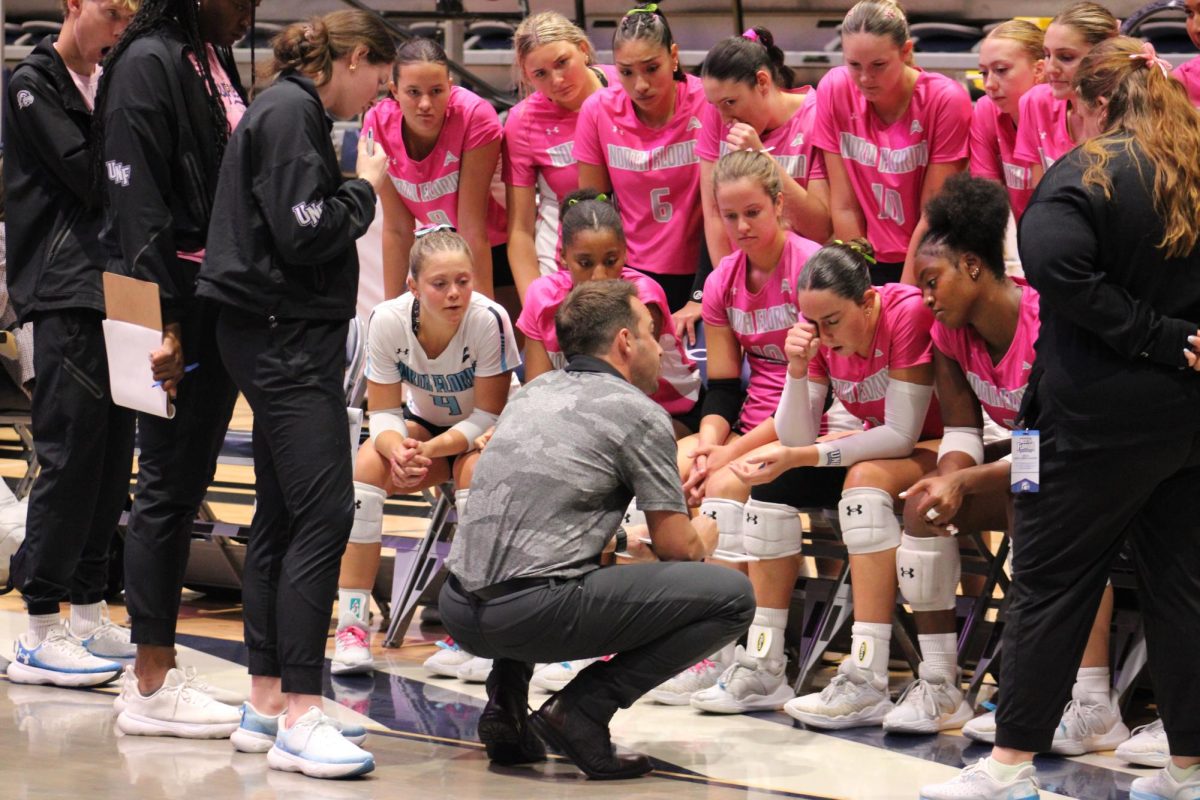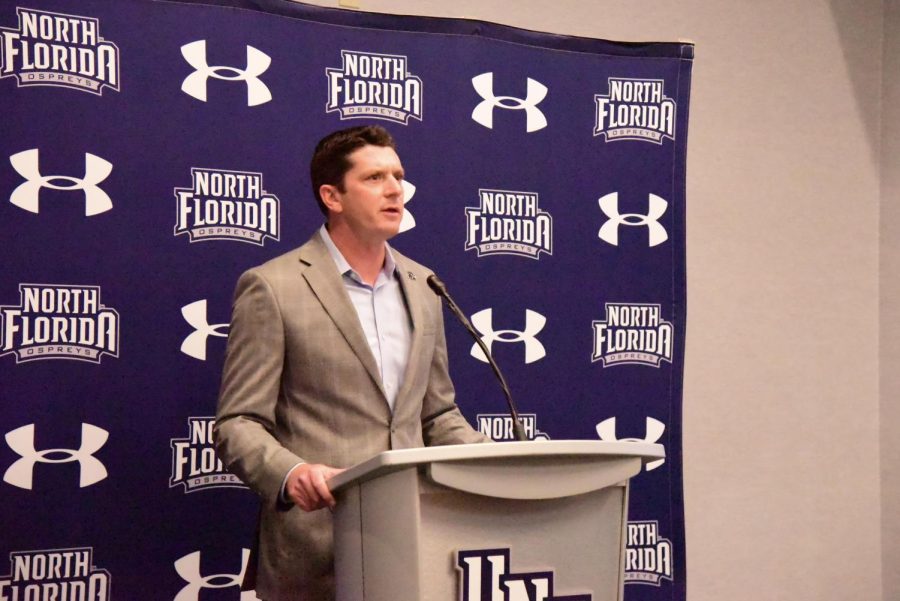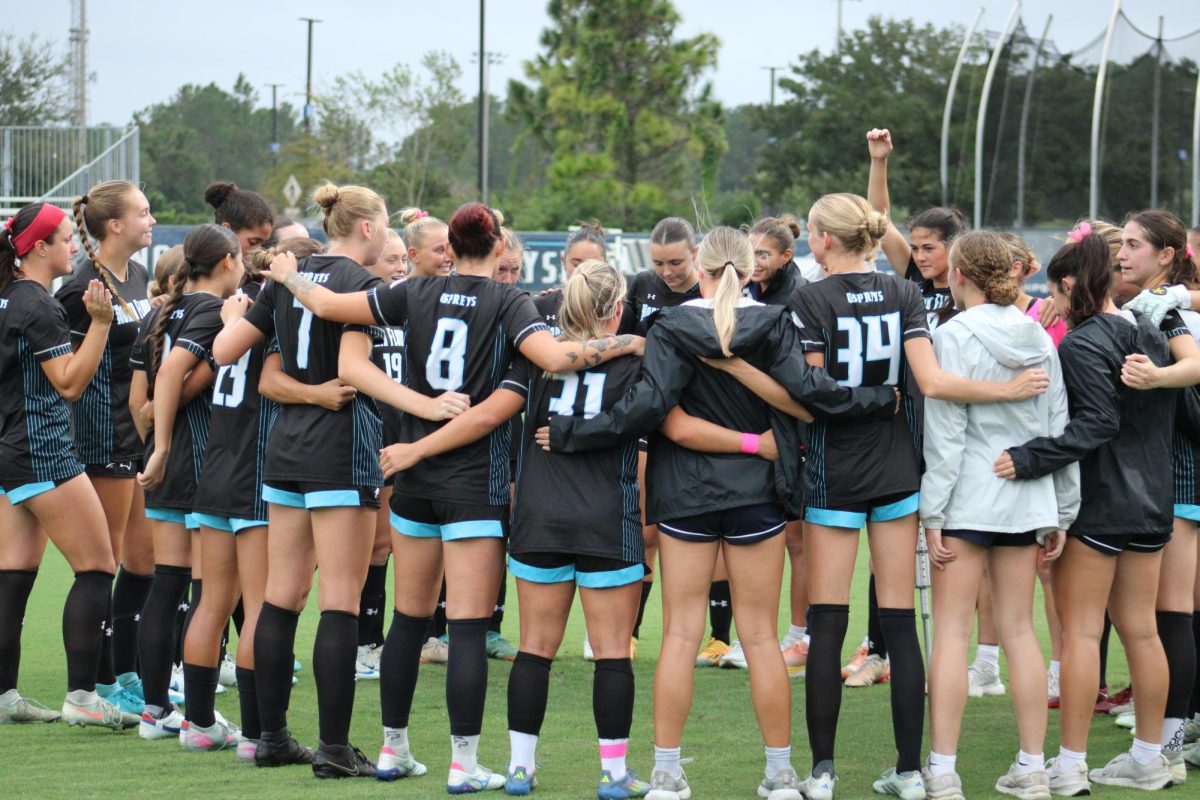By: Dargan Thompson, Assistant Features Editor

UNF found itself in the national spotlight Jan. 26 as the CNN-hosted GOP debate swept through campus.
The debate was the last one before the Jan. 31 Florida primary. There was a lot at stake for the candidates in Florida, as the candidate that gets the most votes in the primary will gain the support of all 50 delegates from Florida at the Republican National Convention this summer.
Florida was the fourth state to select its delegates. Rick Santorum, Mitt Romney and Newt Gingrich each won one of the three previous states, making the Florida primary all the more important in distinguishing a clear leader in the race.
It was evident that debates played a part in the outcomes of the previous primaries. After a strong debate performance in South Carolina, Gingrich surged ahead of Romney in the polls and won the primary.
Although the debate at UNF was the 19th Republican debate in this election cycle, Washington Bureau Chief of CNN Sam Feist said it was still important. Debates are a better way to choose a candidate than misleading 30-second ads, as they allow Americans to see who is an effective communicator, he said.
Romney, Gingrich and Santorum entered the debate in attack mode as they fought for votes. However, Ron Paul, the lone Libertarian, drew many laughs from the audience with his quirky responses. Paul’s National Press Secretary Gary Howard said Paul is focusing less on “winner-take-all” states like Florida.
CNN host Wolf Blitzer moderated and accepted questions from the audience as well as from members of the Hispanic Leadership Network, who joined in via satellite network from Miami with CNN Español.
The majority of the debate consisted of arguments between front-runners Romney and Gingrich, starting with a contentious back and forth dialogue on the issue of immigration.
Gingrich said he wants to be tough on immigration but also realistic, saying U.S. officials cannot round up and deport “grandmothers” and families that have been in the U.S. for a long time. He stood by his ad that called Romney the most anti-immigrant of the four candidates.
This attack got a rise out of Romney, who said the statement was “simply inexcusable,” as he is a strong supporter of legal immigration. He said Gingrich should apologize for his “highly charged epithet.”
But Gingrich was not backing down, asking Romney what language he would use to describe someone who would deport a grandmother or grandfather from their family. He said he would give the grandmother rights to residency without citizenship, so she could stay here legally.
“Our problem is not 11 million grandmothers,” Romney said, getting laughs from the audience.
Santorum and Paul had a brief argument over the next question on trade with Latin America but overall were left on the sidelines of the showdown between Gingrich and Romney.
The debate turned into a series of personal attacks between Romney and Gingrich as Romney used a question about the housing market to bring up Gingrich’s involvement with Fannie Mae and Freddie Mac. Gingrich threw it right back, saying Romney owned shares in the companies, to which Romney said that a trustee manages his investments in a blind fund.
“Mr. Speaker, have you checked your own investments?” Romney said.
Blitzer then brought in Paul and Santorum, asking if Romney and Gingrich should return the money they made off Fannie Mae and Freddie Mac.
“That subject really doesn’t interest me a whole lot,” Paul said.
Santorum got one of the biggest rounds of applause of the night when he asked Gingrich and Romney to set aside their “petty personal politics” and focus on the issues.
However, throughout the night, many arguments stemmed from questions about the negative ads put out by Gingrich and Romney. The amount of negative advertising was an issue in many of the previous debates as well, with candidates often claiming they have no influence over the political action committees, also called Super PACs, which raise money and run ad campaigns separately from the candidates.
Romney said he hadn’t seen an ad that accused Gingrich of calling Spanish “the language of the ghetto,” saying someone else probably ran the ad. After a fact check, however, Blitzer said the ad was indeed his and was running on the radio in Florida.
Gingrich got some boos from the crowd when he refused to answer a question about his remarks regarding Romney’s personal finances. Romney took the opportunity to defend his financial record, saying he’s proud of being successful.
“What you’ve accomplished in your life shouldn’t be seen as a detriment, it should be seen as an asset to help America,” Romney said.
The candidates discussed issues such as taxes, health care and trade with Cuba but did not talk about education, despite being on a college campus.
An interesting moment came when an audience member introduced himself as a “Palestinian-American Republican,” saying, “I’m here to tell you we do exist.” He did not look happy as Romney and Gingrich restated their pro-Israel stance; Gingrich stuck to his controversial statement that Palestinians are an “invented people.”
Throughout the debate, all the candidates criticized the Obama administration and spoke of the changes they would make. The debate ended with each candidate explaining why he would be the person most likely to beat Obama in the November general election.
Maine and Nevada will hold their caucuses Feb. 4, but the next debate is not until Feb. 22 in Mesa, Arizona. The biggest day for the candidates will be March 6, called Super Tuesday, when people in 11 states will cast their vote. Fewer states are holding primaries on Super Tuesday than in years past, but it will still be an important day in deciding who will run against President Barack Obama.
Email Dargan Thompson at asst.features@unfspinnaker.com.
Photo Gallery by Sean Murphy
(Press ESC key to exit)
[nggallery id=3]
Check out the following shorts based on the story you’ve just read. Both were created by students in the Applied Journalism class at UNF.















